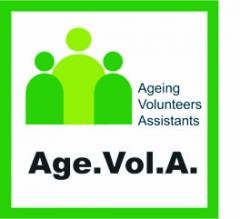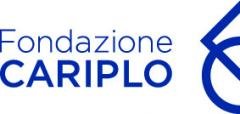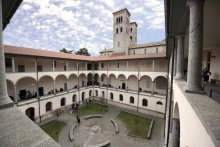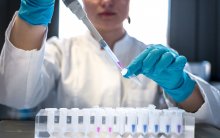
“By 2030 Italy will be the fourth oldest country in the world” (Euromonitor International 2015). According to Censis (2013), domestic workers employed by Italian families are expected to reach 2,151,000 in 2030), of whom 77.3% are foreign and 60% work for seniors as caregivers. This population of foreign domestic assistants to seniors is itself ageing, and is expected to increase the already growing number of over-65s, who might in turn need assistance in the future (Rapporto Varese 2015). Varese is an 80,000-inhabitant city in North-West Italy, north of Milan and just south of the Swiss border (Provincia di Varese 2017); 13% of its population is over 55 (Urbistat 2017); and foreigners represent over 8% of the province’s population, a significant proportion of whom (Rapporto Varese 2015) is employed as caregivers to assist elderly people in their homes.
The Age.Vol.A. project starts from the assumption that, given this demographic scenario, between home-assisted Italian seniors and their non-Italian caregivers, a linguistic and cultural barrier as well as a digital divide exist. This tends to increase the physical and social isolation of the elderly population, even reducing their personal space, e.g. when the home is their only living place but it is co-occupied by a carer who is a foreigner and, due to said linguistic and cultural barriers, also remains a stranger.
The Age.Vol.A. project hypothesises that the linguistic and cultural barrier existing between home- assisted Italian seniors and their non-Italian caregivers can be removed or at least reduced by creating and introducing multilingual tools (a web portal and a smart device application) aimed at providing the carers with terminology and practical information related to their assisted and the institutions they usually deal with in the carers’ own language(s). To do so, a thorough study of both the seniors and the caregivers’ populations of the territory considered (Varese province) will be first carried out, to hear the voices of both seniors and caregivers discussing the lack of social spaces and the communicative gaps from their own experience and point of view. From these needs analyses, theoretical genres and models of communication will be derived. These will be used to design and create the multilingual technological products aimed to assist those who assist the elderly; they will contain, divided and organised into different sections, information useful to the carers’ profession related to senior services, from health and healthcare to administrative issues. These will include terminological tools like multilingual glossaries, information on public institutions dealing with seniors (office hours, contacts), descriptions of administrative procedures, emergency procedures and contacts – all referring to the local territory. One or more of these sections could also be customisable, e.g. with the assisted family’s own contacts and procedures in case of emergency or need. The technological tools would be entirely localised (translated) into a number of selected foreign languages, based on those spoken by most foreign caregivers in the Varese province.
Prof. Alessandra Vicentini, University of Insubria
Principal Investigator
Her research activity is focused on the analysis of the communication strategies of national and international publicly- and privately-funded national health systems; popularisation of medical-scientific discourse; medical-scientific terminology and lexicography; terminology and multilingualism in dictionaries and glossaries. Scientific research tools are Critical Discourse Analysis, Genre and Text Analysis, Historical lexicography, also with the help of software for lexical and text analysis, e.g. WordSmith Tools.
Prof. Kim Serena Grego, University of Milan
Head of the LangComm research unit
This member’s research focuses on Translation Studies, English for Specific Purposes (politics, medicine, science), Genre Analysis, Critical Discourse Analysis, popularization of medical-scientific discourse, Corpus Linguistics tools (WordSmith Tools, Sketch Engine, AntConc, BootCat).
Prof. Federico Pasquarè Mariotto, University of Insubria
Coordinator of the Dissemination Plan
His research activity is focused on Science Communication: analysis of the scientific communication about environmental risks both in the geologic framework (volcanism, seismicity, tsunami, floods and landslides) and in the climatic one (global warming, extreme phenomena as hurricanes and typhoons). In particular, he investigates how these topics are communicated by institutions and by the mass-media (TV, press, news blogs, social networks) on a national and an international scale. The research is conducted through software dedicated to the analyses of journalistic texts, like TalTac2 and WordSmith Tools.
Daniel Russo, PhD, University of Insubria
Assistant Professor, LangComm research unit
His research primarily focuses on English for Medical Purposes, Translation Studies, Translation Technologies and Speech and Speech and Language Processing (SLP). This interest is associated with his experience as a professional translator specialised in Medicine and Pharmaceutics (i.a. the Italian version of Gray’s Anatomy published by Elsevier). He is interested in the use of English in multilingual medical contexts, such as websites, brochures and forms. Drawing on mixed methods, his current research focuses on the impact of digital media on medical writing.
Daniele Grechi, PhD, University of Insubria
Researcher, SocioComm research unit
Daniele Grechi has a Post Doc position at the Department of Human Sciences and Territorial Innovation at the University of Insubria (Italy), where he teaches Data Analytics and Statistics. He is also contract lecturer of Financial Mathematics and Quantitative methods for Management at the Catholic University of the Sacred Heart of Milan. Previously (2011-2015) he was a research fellow in the Department of Naval, Electrical, Electronic and Telecommunications Engineering of the Polytechnical School, University of Genoa where he was involved in a project concerning software cost estimation. He received (2019) a PhD in Methods and Model for Economic Decisions from the University of Insubria. His current research includes quantitative methods for economic and managerial analysis with a special focus on transportation, tourism and sustainability.
Giulia Rovelli, University of Insubria
PhD student
She is currently studying how older people have been represented in the lay press in the last few decades, with the aim of tracing how the terminology used to describe this specific demographic group has evolved in order to adapt to older people’s changing status and need for respectful and representative language practices.
PAST MEMBERS
Prof. Paolo Francesco Campione, University of Insubria
SocioComm research unit
His research activity is focused on cultural anthropology, art anthropology, museology, exoticism and primitivism, photography. Fieldwork research was conducted in New Guinea, Bali and Laos. Research on new and modern systems based on long-term planning, organic interaction with the territory and on the development of international networks for sharing and promoting cultural organisations and institutions.
Moira Luraschi, PhD, University of Insubria
Researcher, SocioComm research unit
Her research activity focuses on Communication Anthropology, Cultural and Communicative Systems in the Far East. She carried out field research among the Xoraxané Roma living in the Arrivore Roma Camp in Turin, Italy; in Bamenda (NW Cameroon) as doctoral research. Sponsored by the Centro Studi Africani in Turin, Italy; among the Cameroonian migrants living in Varese, Italy.







